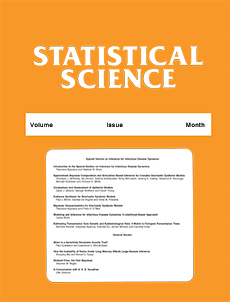Abstract
In the past ten years there has been a dramatic increase of interest in the Bayesian analysis of finite mixture models. This is primarily because of the emergence of Markov chain Monte Carlo (MCMC) methods. While MCMC provides a convenient way to draw inference from complicated statistical models, there are many, perhaps underappreciated, problems associated with the MCMC analysis of mixtures. The problems are mainly caused by the nonidentifiability of the components under symmetric priors, which leads to so-called label switching in the MCMC output. This means that ergodic averages of component specific quantities will be identical and thus useless for inference. We review the solutions to the label switching problem, such as artificial identifiability constraints, relabelling algorithms and label invariant loss functions. We also review various MCMC sampling schemes that have been suggested for mixture models and discuss posterior sensitivity to prior specification.
Citation
A. Jasra. C. C. Holmes. D. A. Stephens. "Markov Chain Monte Carlo Methods and the Label Switching Problem in Bayesian Mixture Modeling." Statist. Sci. 20 (1) 50 - 67, February 2005. https://doi.org/10.1214/088342305000000016
Information





